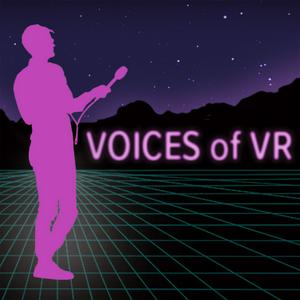On Wednesday, January 28, 2026, Ian Hamilton announced on Bluesky that "I've been fired from UploadVR." He was the editor in chief at UploadVR, and he wrote a Substack post titled "Ian is Typing" on January 30th detailing how is co-workers were pushing to do a test of a "clearly disclosed AI author for UploadVR," and that he had three specific concerns that it be brief, for the ability for readers to turn off and hide all AI-authored posts, and for human freelancers to have the right of first refusal. Hamilton claims to have tried to raise these concerns in the context of Slack, but that the experiment was going to proceed regardless. He writes, "Unable to shift the direction of my colleagues and out of options to affect what was coming, I stepped out of Slack and sent a final email to them on Wednesday morning with a number of my contacts in the industry copied, raising some of these concerns. Not long after, I was called by my boss and fired."
I spoke with Hamilton last Friday after his Substack post in order to get more context that led to his departure. Hamilton claims that UploadVR Editor & Developer David Heaney and UploadVR's Operations Manager Kyle Riesenbeck were behind the push to test this clearly disclosed AI author on UploadVR, and that ultimately the proposed test was a business decision made by Riesenbeck. It was a decision that Hamilton ultimately disagreed with, and he cites it as the primary factor that led to behavior that ultimately led to his firing. (UPDATE Feb 5, 2026: It is worth noting here that UploadVR has yet to run this AI bot author test, but that it was the proposed test that was the catalyst for Hamilton’s behavior).
The specific reasons and circumstances around Hamilton's firing are publicly disputed by Heaney, who reacted on Twitter after Hamilton's Substack post went live by saying, "It is indeed only one side of the story. And an incomplete telling of it, with key omissions and wording choices that serve to paint a misleading picture." In another post Heaney says, "I can't get into it more at this point for obvious reasons, but don't believe everything you read, especially a single side of a complex story." I asked Hamilton for his reaction to Heaney's claims that he's being misleading during our interview, and he did provide more context in our conversation that lead up to his firing. Ultimately, it does sounds like the proposed AI bot author test was the primary catalyst for Hamilton, and that this disagreement may have led to other behaviors and reactions that could also be reasonably cited for why he was fired. UploadVR may have a differing opinions as to what happened, but no one from UploadVR has made public comments beyond what Heaney has said on Twitter. I have extended invitations to both Riesenbeck or Heaney to come onto the podcast for a broader discussion about AI, but nothing has been confirmed by the time of publication.
My Personal Take on AI: Technically, Philosophically, Legally, and Culturally
Public discourse around AI has split into a binary of Pro-AI vs Anti-AI, and while my personal views can not be easily collapsed into one side of the other, I'd usually take the Anti-AI side of a debate if given the opportunity. I do think some form of AI is here to stay, and will be around for a long time, but that right now there is a lot of hype and deluded thinking on the topic. I see AI as a technology that consolidates wealth and power, and so a primary question worth asking is “Whose power and wealth is being consolidated?” Karen Hao's The Empire of AI elaborates on how the past patterns of colonialism are replaying out within the context of data and the field of AI, as well as how scaling with more compute power has been the primary mode of innovation in AI, and that Gary Marcus has been pushing against the "Scale is All You Need" theory for many years now.
Technically speaking, I'm more of a skeptic in the short-term around LLMs along the lines of Stocha...


